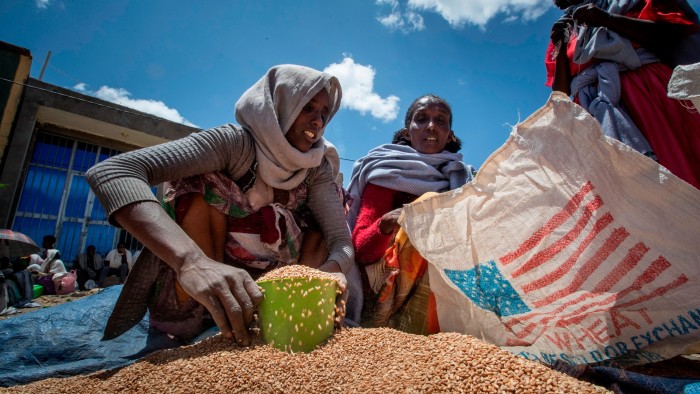Unlock the White House Watch newsletter for free
Your guide to what the 2024 US election means for Washington and the world
One of the most striking features of Donald Trump’s second administration is its willingness to trash decades of US soft power. The “America First” approach has little interest in winning or keeping friends, which it views mostly as freeloaders on US largesse. One demonstration is the threats of tariffs or force even against allies to coerce them into doing the administration’s bidding. Another is the suspension of billions of dollars of US foreign aid — and the assault on the agency that manages about two-thirds of the funds, USAID. This has thrown initiatives aimed at helping vulnerable people around the world into chaos, and is harming America’s own interests.
Trump quickly froze almost all US foreign aid for 90 days pending a review to stamp out “woke” spending and align it with his goals. Stop-work orders barred aid groups from using funding already received. Initiatives ranging from vaccination programmes to tackling malnutrition to mine clearance came to a halt. Some aid groups have been forced into mass lay-offs.
Emergency food provision and “life-saving” services were later exempted, though Pepfar, which provides antiretroviral drugs for more than 20mn people with HIV, and some other vital programmes, are still being disrupted. The president and his efficiency tsar Elon Musk then turned their sights on USAID (created by John F Kennedy but now run, says Trump, by “radical lunatics”) which is in limbo as it awaits a restructuring or potential abolition.
Any government is entitled to review aid to ensure it is effective. Assistance to countries with often weak institutions has to be carefully policed. USAID has faced past accusations of inefficiency and waste, though that would not merit shutting it down. To pause programmes without warning and throw the main federal agency into chaos looks like wilful sabotage.
The Trumpian view of US foreign assistance — which amounts to barely 1 per cent of federal spending — is also shortsighted. Marco Rubio, the new secretary of state, says every dollar the US spends must make America safer, stronger, or more prosperous. Yet gains from foreign aid are often indirect, or not easy to quantify in financial terms.
Done properly, fighting poverty and disease and enabling economic development makes the world safer and more prosperous, helping to curb instability and the spread of autocracy and extremism. It expands markets for American exports. Assistance fosters goodwill that can ease the path to broader diplomatic goals. Aid is not always as effective as the US might hope; some governments happily pocket it while retaining a disregard for Washington. But suddenly cancelling life-saving projects is a good way to provoke an anti-American backlash.
A retrenchment by the world’s biggest provider of foreign assistance will compound a regrettable pullback by some other wealthy nations. Britain’s then Conservative government cut aid spending in 2020, and folded its development department into the Foreign Office — which a spending watchdog found last year had diminished UK aid capability. Agencies fear the Trump administration, which is already pulling the US out of the World Health Organization, may do further damage by cutting its funding for UN agencies such as the World Food Programme and the UNHCR refugee agency.
All this opens more space for China, which has skilfully leveraged its shift from onetime aid recipient to leading donor and lender to win over hearts and minds in the developing world. As Trump and his billionaire backers engage in a purge intended to stamp their priorities on to the US federal state, millions of non-Americans are getting caught in the crossfire.
Read the full article here




